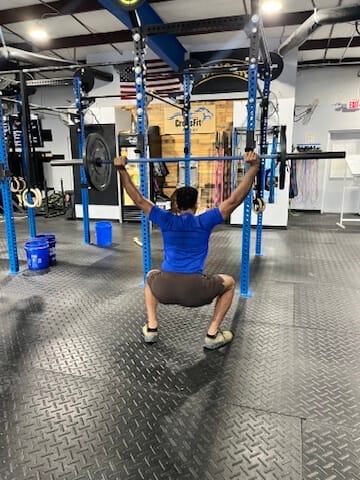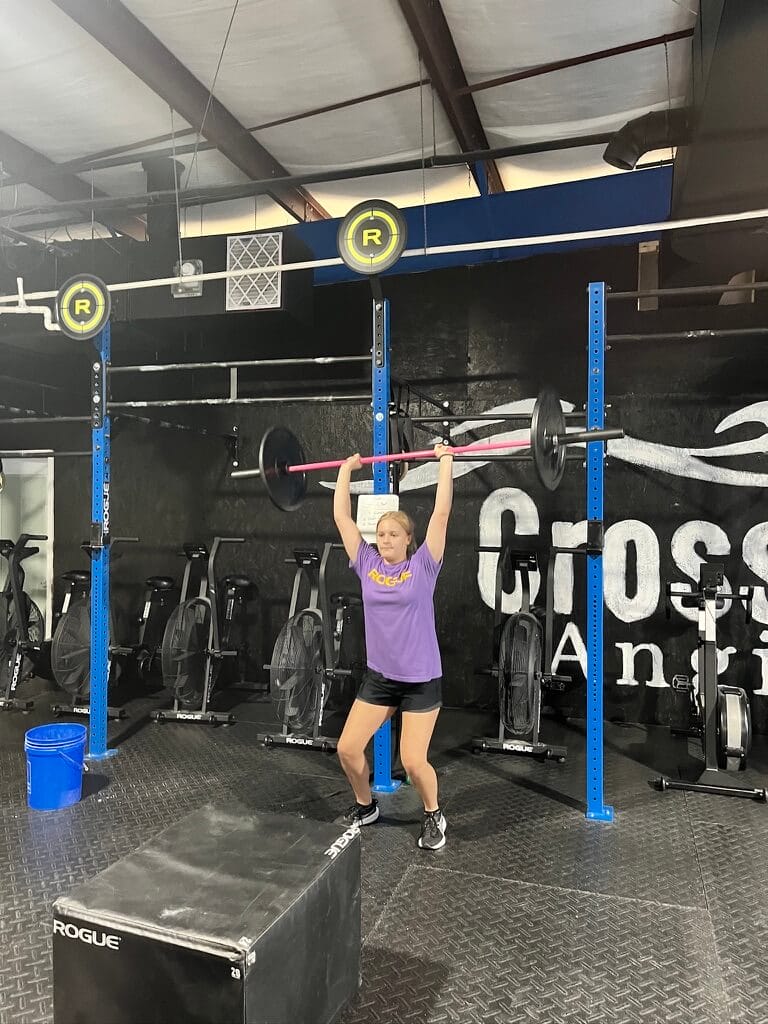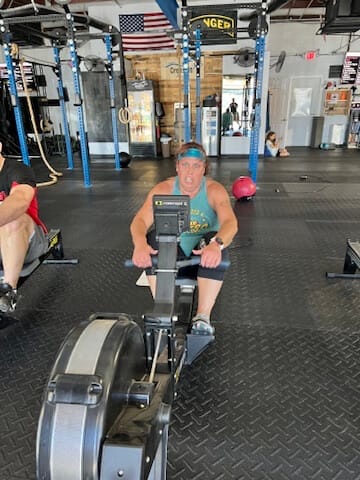Table of Contents
Why the World’s Fittest Games Should be in the Olympics – Not the CrossFit Games
The CrossFit Games have undoubtedly become a global spectacle, showcasing incredible athleticism, mental toughness, and endurance. Every year, athletes from around the world compete in a variety of grueling workouts, earning the title of “The Fittest on Earth.” Yet, as the debate continues to rage on, many are left wondering: Should the world’s fittest athletes really be competing in the CrossFit Games, or would their talents be better suited for the Olympics? In this article, we will explore why the title of the world’s fittest should be reserved for the Olympics and how the ongoing 2024 Olympic medal count plays a crucial role in this debate.
For more on this debate, read about CrossFit and Personal Training and how personalized coaching might offer a different perspective on fitness compared to global competitions like the Olympics.
The Olympics vs. The CrossFit Games: A Historical Perspective
The Olympics have long been considered the pinnacle of athletic achievement. Dating back to 776 B.C., the Games were a celebration of physical prowess and endurance. Today, they represent the highest honor for athletes worldwide, with nations coming together in the spirit of competition. Athletes spend years, sometimes decades, training for the chance to win an Olympic medal. The prestige and honor associated with being an Olympic medalist are unparalleled.
On the other hand, the CrossFit Games, founded in 2007, are relatively new. They have grown exponentially in popularity, attracting athletes from various sports, including weightlifting, gymnastics, and endurance racing. The CrossFit Games have created their niche, but the question remains: Does this niche warrant the title of “The Fittest on Earth,” a claim traditionally associated with Olympic athletes?
Learn more about the growing popularity of CrossFit in our CrossFit Community at CrossFit Angier article, which explores how community and competition shape this dynamic fitness program.
Measuring Fitness: The Olympic Standard

Fitness is multifaceted, encompassing strength, endurance, flexibility, and speed. The Olympics, with its variety of sports, test these attributes in the most rigorous way possible. From track and field events to swimming, gymnastics, and weightlifting, the Olympics challenge athletes to master their chosen discipline to perfection. These events have stood the test of time as the gold standard for measuring fitness.
In contrast, the CrossFit Games combine elements from various sports, creating a hybrid of challenges that test an athlete’s overall fitness. While this approach does produce incredibly well-rounded athletes, the scope of the Games is limited. Unlike the Olympics, where each sport requires a lifetime of dedication to a specific discipline, CrossFit emphasizes versatility over mastery. This raises the question: Should an athlete who excels in multiple domains but doesn’t necessarily master any single one be considered the world’s fittest?
To dive deeper into how CrossFit compares with traditional sports, check out our comparison of CrossFit Angier vs. CrossFit Fuquay Varina: Community Focus.
The 2024 Olympic Medal Count: A Reflection of True Global Competition
The 2024 Olympics have garnered immense attention, with nations fiercely competing to top the medal count. The ongoing tally of gold, silver, and bronze medals serves as a testament to each country’s athletic prowess. It also reflects the diverse range of sports and disciplines that athletes have mastered over their lifetimes. This year’s medal count highlights the global reach of the Olympics and how athletes from different cultures and backgrounds compete on the world’s biggest stage.
The CrossFit Games, on the other hand, remain largely limited to a specific community of athletes. While CrossFit has expanded internationally, it doesn’t attract the same level of global participation or recognition as the Olympics. The Olympic medal count, especially in 2024, emphasizes the widespread nature of the competition, with over 200 nations competing across dozens of sports. This level of participation is something that the CrossFit Games cannot replicate.
Explore more about how CrossFit competitions measure up with the global reach of the Olympics in our CrossFit Etiquette Rules post, which covers everything from community expectations to competition standards.
By capitalizing on the popularity of the 2024 Olympic medal count, we can draw attention to the broader question of what it means to be the world’s fittest. The Olympics, with their centuries-old tradition and global reach, provide a platform for athletes to prove their dominance in their chosen sport. The CrossFit Games, while impressive, cannot match the scale or significance of the Olympics.
For further insight into what makes CrossFit unique, check out our post on The Power of Community in Fitness, where we delve into the importance of camaraderie and collective support in achieving fitness goals.
Why the Title of “The World’s Fittest” Belongs in the Olympics

- Global Representation: The Olympics bring together athletes from nearly every country, offering a truly global competition. This diverse representation ensures that the title of the world’s fittest is earned against the best athletes from all corners of the globe. The CrossFit Games, although international, don’t attract the same level of participation or visibility as the Olympics.
- Specialization and Mastery: Olympic athletes spend their lives mastering a specific discipline, whether it’s swimming, running, or gymnastics. This level of specialization ensures that Olympic competitions are a test of the highest level of fitness in a given sport. CrossFit’s focus on versatility, while impressive, lacks the depth of specialization seen in Olympic sports.
- Historical Significance: The Olympics have a rich history, spanning thousands of years. The Games represent a legacy of athletic achievement that has been passed down through generations. The CrossFit Games, while innovative, lack this historical context and the prestige that comes with it.
- Prestige and Recognition: Winning an Olympic medal is considered one of the greatest achievements in an athlete’s career. The worldwide recognition that comes with an Olympic victory cannot be matched by winning the CrossFit Games. The Olympic medal count is followed closely by fans and nations alike, further emphasizing the importance of these achievements on a global scale.
- Variety of Disciplines: The Olympics encompass a vast range of sports, from the traditional (such as athletics and gymnastics) to newer sports (like skateboarding and surfing). This variety ensures that the title of the world’s fittest is not limited to one style of competition but is instead spread across multiple domains of fitness.
Capitalizing on the Popularity of the 2024 Olympic Medal Count
The 2024 Olympic medal count is one of the most popular search terms this year, as fans from around the world eagerly track their nation’s success. This presents a unique opportunity to engage with a wider audience and draw attention to the debate over where the title of the world’s fittest should truly rest.
By positioning this debate within the context of the 2024 Olympics, we can tap into the ongoing interest in the Games and create a meaningful conversation about the nature of fitness and competition. Linking this discussion to the Olympic medal count allows us to reach a broader audience, many of whom are already engaged with the Olympic Games.
Additionally, by emphasizing the global representation, historical significance, and prestige of the Olympics, we can make a compelling case for why the title of the world’s fittest should be reserved for Olympic athletes.
ecent tragic events at the 2024 CrossFit Games have brought the conversation around athlete safety, transparency, and the future of CrossFit as a sport into the spotlight. Serbian athlete Lazar Đukić’s death during the first day of competition has raised serious concerns within the CrossFit community, and it has sparked an outcry for change led by the Professional Fitness Athletes’ Association (PFAA). These events have reignited the debate over whether the title of “The Fittest on Earth” truly belongs to CrossFit athletes or if the fitness world should turn its focus back to the Olympics, where safety and professional standards are more rigorously enforced.
The PFAA’s Call for Change: Athlete Safety and Professionalism
Founded in 2020, the Professional Fitness Athletes’ Association (PFAA) was created to give CrossFit athletes a voice in their sport. The organization has been pushing for higher standards of safety, transparency, and professionalism in CrossFit competitions since its inception. However, despite their efforts, concerns have often been dismissed by CrossFit, Inc. The tragic death of Lazar Đukić has brought these concerns to the forefront, leading the PFAA to issue three demands: transparency around the investigation of Đukić’s death, the formation of an independent safety team, and the resignation of Dave Castro from his role on the Sport Team.
CrossFit, Inc.’s response to these demands has been met with mixed reactions. While they have initiated a third-party investigation into the incident, the lack of immediate action and the history of dismissiveness toward athlete concerns have left many questioning the future of the sport. Brent Fikowski, president of the PFAA and third-place finisher at the 2024 CrossFit Games, has been vocal about the need for change. In his public statements, Fikowski emphasized that the current culture within CrossFit, Inc. treats athletes as disposable, a mindset that he and the PFAA are determined to change.
The Tragic Loss of Lazar Đukić and Its Impact on the CrossFit Community
Lazar Đukić was a beloved member of the CrossFit community, known not only for his athletic prowess but also for his infectious sense of humor and positive attitude. His death has shaken the community to its core, leading many to question the safety protocols in place at CrossFit competitions. Đukić’s passing serves as a stark reminder that while CrossFit promotes itself as a test of ultimate fitness, the demands placed on athletes must be balanced with proper safety measures.
This tragedy has highlighted a fundamental issue within the CrossFit competition structure: the lack of predictability and preparation. Unlike the Olympics, where athletes have time to prepare for specific events with well-established safety protocols, CrossFit competitions are often shrouded in mystery, with athletes learning about their workouts just days or even hours before they are expected to perform. This element of surprise, while exciting for spectators, can lead to dangerous situations where athletes are pushed beyond their limits without adequate time to prepare or recover.
CrossFit’s Response: Is It Enough?
In response to the PFAA’s demands, CrossFit, Inc. has stated that they are committed to working with athletes to ensure greater safety and trust in the sport. However, their past actions and the dismissive attitude reported by many athletes have left doubts about their willingness to implement real change. The PFAA’s demands represent a larger call for accountability and a shift in the culture of CrossFit as a sport. For many, the question is not just about fixing immediate issues but about creating a long-term plan that prioritizes athlete safety and professional standards.
Dave Castro, a key figure in the CrossFit Games, has been at the center of much of the controversy. His leadership style, which some athletes have described as uncooperative and dismissive, has contributed to the current tensions between CrossFit, Inc. and the athlete community. The PFAA’s call for his resignation is not just about one individual—it represents a demand for a cultural shift within the organization, one that prioritizes the well-being of athletes over the spectacle of the competition.
The Olympic Standard: A Model for CrossFit?
In light of these recent events, it’s worth asking whether CrossFit should look to the Olympics as a model for how to structure its competitions. The Olympics have long been the gold standard for athletic competition, with rigorous safety protocols, transparent event planning, and a commitment to athlete well-being. Olympic athletes have the benefit of knowing their events well in advance, allowing them to prepare both physically and mentally. The unpredictable nature of CrossFit competitions, while thrilling, may no longer be a sustainable model if the sport is to continue growing and attracting top-tier talent.
The Olympics also provide a platform for athletes to showcase their mastery of a specific discipline. CrossFit, with its emphasis on versatility, often forces athletes to compete in events they may not be fully prepared for, increasing the risk of injury. If CrossFit is to be taken seriously as a professional sport, it may need to adopt some of the standards that have made the Olympics the pinnacle of athletic achievement for centuries.
Moving Forward: The Future of CrossFit and the Role of the PFAA
The future of CrossFit as a competitive sport will depend largely on how it responds to the demands of the PFAA and the broader athlete community. The tragedy of Lazar Đukić has forced a reckoning within the sport, one that cannot be ignored. As athletes and fans alike mourn Đukić’s passing, there is a growing consensus that change is necessary to ensure that CrossFit remains a safe and viable sport for future generations.
The PFAA’s efforts to professionalize the sport are a critical step in this direction. By advocating for standardized judging, higher safety standards, and better communication between CrossFit, Inc. and athletes, the PFAA is working to create a more sustainable and athlete-friendly environment. Whether or not CrossFit, Inc. will meet these demands remains to be seen, but one thing is clear: the status quo is no longer acceptable.
For athletes like Brent Fikowski and many others, this moment represents a turning point for the sport. The question now is whether CrossFit will embrace the changes necessary to protect its athletes and elevate the sport to new heights, or whether it will continue down a path that prioritizes spectacle over safety.
Conclusion: CrossFit’s Crossroads—A Time for Reflection and Change
The death of Lazar Đukić has cast a shadow over the 2024 CrossFit Games, forcing the community to confront uncomfortable truths about the sport. The PFAA’s demands for change are not just about this one tragic incident—they are about creating a safer, more professional environment for all athletes. As CrossFit, Inc. grapples with these challenges, it may need to look to other established sports, like the Olympics, for guidance on how to move forward.
The debate over where the title of “The Fittest on Earth” truly belongs may continue, but one thing is certain: the future of CrossFit as a sport depends on its ability to adapt, listen to its athletes, and prioritize safety above all else. As the community comes together to mourn the loss of Lazar Đukić, it is also a time to push for the changes that will ensure such a tragedy never happens again.
For those inspired by the resilience and dedication of athletes like Lazar Đukić, CrossFit Angier offers a supportive community where you can pursue your own fitness goals safely and effectively. Sign up today for a free no-sweat intro here or explore our membership options here. Join us in creating a safer and stronger fitness community.
External Links:
- Link to CrossFit Official Website for official CrossFit information.
- Link to National Strength and Conditioning Association (NSCA) for more insights on strength and conditioning standards.
Additional Information:
Why the World’s Fittest Games Should Be in the Olympics: Setting the Standard for Fitness Competitions
When discussing fitness and athleticism, it becomes clear that the world’s fittest games should be in the Olympics. The world’s fittest games should be in the Olympics because the level of competition, the global reach, and the emphasis on athlete safety are unparalleled. The world’s fittest games should be in the Olympics, where athletes from every nation come together to compete at the highest level. The world’s fittest games should be in the Olympics, as the Olympics have long been considered the pinnacle of athletic achievement, showcasing a wide variety of sports that test all aspects of fitness.
The recent tragedy at the CrossFit Games has brought up the question of whether the world’s fittest games should be in the Olympics rather than in CrossFit competitions. If the world’s fittest games should be in the Olympics, it’s because the Olympics offer a well-established infrastructure that prioritizes the health and safety of the athletes. The world’s fittest games should be in the Olympics, where rigorous safety standards are maintained, and athletes can perform at their best without unnecessary risk. The world’s fittest games should be in the Olympics, where the focus is on skill, preparation, and fair competition.
The world’s fittest games should be in the Olympics for several reasons, but one of the most important is that the Olympics are known for providing a platform for the best athletes in the world. The world’s fittest games should be in the Olympics, where the competition is fierce, and athletes compete under the highest standards. The world’s fittest games should be in the Olympics, where the events are designed to test not just overall fitness but specific disciplines that represent the pinnacle of human performance. The world’s fittest games should be in the Olympics, where these events have been fine-tuned over centuries to ensure that they truly reflect the capabilities of the world’s best athletes.
When considering why the world’s fittest games should be in the Olympics, it’s important to look at the global impact. The world’s fittest games should be in the Olympics, which are watched by millions around the globe, making it the perfect platform to celebrate the world’s top athletes. The world’s fittest games should be in the Olympics, where nations come together to celebrate fitness and athletic excellence. The world’s fittest games should be in the Olympics because the event brings together athletes from all walks of life, competing in a variety of sports that showcase the full spectrum of human ability.
Another reason the world’s fittest games should be in the Olympics is the level of professionalism. The world’s fittest games should be in the Olympics, where the organization and execution of the events are handled with the utmost care and attention to detail. The world’s fittest games should be in the Olympics, where athletes know they are competing under fair conditions with standardized rules. The world’s fittest games should be in the Olympics, where the emphasis on fairness and transparency sets a global standard for competitions.
Safety is another major reason why the world’s fittest games should be in the Olympics. The world’s fittest games should be in the Olympics, where safety protocols are strictly enforced to protect the athletes. The world’s fittest games should be in the Olympics, where athletes can push their limits without fear of injury due to poorly managed events. The world’s fittest games should be in the Olympics, where the health and well-being of the athletes are always a top priority, ensuring that they can compete safely and effectively.
The world’s fittest games should be in the Olympics, where the event’s history and prestige add to the honor of competing. The world’s fittest games should be in the Olympics, where winning a medal is a symbol of not just athletic ability but dedication, perseverance, and excellence. The world’s fittest games should be in the Olympics because the recognition that comes with being an Olympic medalist is unmatched in the world of sports.
In conclusion, the world’s fittest games should be in the Olympics, not just because of the level of competition but because of the emphasis on athlete safety, global reach, and professionalism. The world’s fittest games should be in the Olympics, where the best athletes in the world come together to compete on a fair and safe platform.



